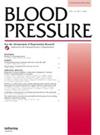Re:“肾素-血管紧张素-醛固酮系统中三个基因(ACE、AGT和CYP11B2)的多态性与血压盐敏感性无关:一项系统荟萃分析”
IF 2.3
4区 医学
Q2 PERIPHERAL VASCULAR DISEASE
引用次数: 1
摘要
我们饶有兴趣地阅读了孙及其同事最近发表在《血压》杂志上的文章。[1] 作者对研究ACE(I/D)、AGT(M235T)和CYP11B2(C344T)与盐敏感性高血压的遗传变异的文献进行了荟萃分析。根据论文的标题和结论,作者得出结论,这些基因变异与盐敏感性高血压无关。然而,他们的研究设计存在明显的局限性,因此无法得出这一结论。主要的局限性是,作者没有考虑其他研究,这些研究检查了与感兴趣的3个标记具有强连锁不平衡(LD)的遗传变异,他们在讨论中也没有将其确定为局限性。例如,ACE I/D与ACE rs4343处于完全LD,报告这两种变体中任何一种的研究都在检查本质上相同的变体。[2-4]其他例子包括AGT(M235T),其与AGT A(-6)G[5]处于强LD中,CYP11B2(C344T)与CYP11B2在rs28491316[6]处于完全LD中。由于这种疏忽,作者未能确定几项研究。Iwai等人完成了一项被省略的研究,该研究发现CYP11B2中的C344T变体与盐敏感性高血压之间存在关联,CYP11B2与CYP11B2 rs28491316处于完全LD。[6,7]为了确保所有生物学相关研究都包括在荟萃分析中,搜索项应包括具有感兴趣的三种变体的完全或强(>80%)LD的SNPs,以便评估所有相关文献,以适当和充分地解决研究问题。此外,没有详细讨论排除随机对照试验(RCT)的原因,也没有讨论排除此类研究可能会如何影响结论。由于随机对照试验不符合纳入标准,几项强有力的研究被忽略,包括一项随机、双盲、安慰剂对照的拉丁方试验,该试验发现盐敏感性高血压与M235T的AGT基因之间存在显著联系。[8] 另一个限制是,只引用和讨论了一项不符合纳入标准的研究。该研究还发现,感兴趣的三种变体与血压盐敏感性之间没有显著关联。[2] 然而,作者没有讨论其他相反的研究,这些研究确实发现感兴趣的变体会影响血压盐敏感性。[8] 鉴于省略高度相关的研究可能会改变得出的结论的主要局限性,作者应考虑更新他们的方法和分析,以包括所有相关的研究。本文章由计算机程序翻译,如有差异,请以英文原文为准。
Re: “Polymorphisms of three genes (ACE, AGT and CYP11B2) in the renin–angiotensin–aldosterone system are not associated with blood pressure salt sensitivity: a systematic meta-analysis”
We read with interest the article recently published in Blood Pressure by J. Sun and colleagues.[1] The authors conducted a meta-analysis of the literature investigating genetic variations in ACE (I/D), AGT (M235T) and CYP11B2 (C344T) with salt-sensitive hypertension. According to the title and conclusions of the paper, the authors conclude that these genetic variants are not associated with salt-sensitive hypertension. However, notable limitations in the design of their study preclude making this conclusion. The main limitation is that the authors did not consider other studies that examined genetic variants that are in strong linkage disequilibrium (LD) with the 3 markers of interest and they did not identify this as a limitation in their discussion. For example, ACE I/D is in complete LD with ACE rs4343 and studies that report either of these two variants are examining essentially the same variant.[2–4] Other examples include AGT (M235T) which is in strong LD with AGT A(-6)G [5] and CYP11B2 (C344T), which is in complete LD with CYP11B2 at rs28491316 [6]. Because of this oversight, the authors failed to identify several studies. One study that was omitted was completed by Iwai et al., which found an association between the C344T variant in CYP11B2, which is in complete LD with CYP11B2 rs28491316 and salt-sensitive hypertension.[6,7] To ensure that all biologically relevant studies are included in the meta-analysis, the search terms should have included SNPs that are in complete or strong (>80%) LD with the three variants of interest in order to assess all relevant literature to appropriately and adequately address the research question. Furthermore, there was no discussion detailing the reason for excluding randomized controlled trials (RCTs), or how the exclusion of such studies may have impacted the conclusion. As RCTs did not meet the inclusion criteria, several robust studies were disregarded including a randomized, double-blinded, placebocontrolled Latin-square trial, which found a significant link between salt-sensitive hypertension and the AGT gene at M235T.[8] An additional limitation is that only one study that did not meet the inclusion criteria was cited and discussed. That study also found no significant association between the three variants of interest and blood pressure salt sensitivity.[2] However, the authors failed to discuss other opposing studies, which did find that the variants of interest affected blood pressure salt sensitivity.[8] Given the main limitation of omitting highly relevant studies, which could alter the conclusions drawn, the authors should consider updating their methods and analysis to include all relevant studies.
求助全文
通过发布文献求助,成功后即可免费获取论文全文。
去求助
来源期刊

Blood Pressure
医学-外周血管病
CiteScore
3.00
自引率
5.60%
发文量
41
审稿时长
6-12 weeks
期刊介绍:
For outstanding coverage of the latest advances in hypertension research, turn to Blood Pressure, a primary source for authoritative and timely information on all aspects of hypertension research and management.
Features include:
• Physiology and pathophysiology of blood pressure regulation
• Primary and secondary hypertension
• Cerebrovascular and cardiovascular complications of hypertension
• Detection, treatment and follow-up of hypertension
• Non pharmacological and pharmacological management
• Large outcome trials in hypertension.
 求助内容:
求助内容: 应助结果提醒方式:
应助结果提醒方式:


